ASEF LinkUp 2025 | Reframing Cultural Diplomacy through Shared Accountability and Collective Practice in Yogyakarta
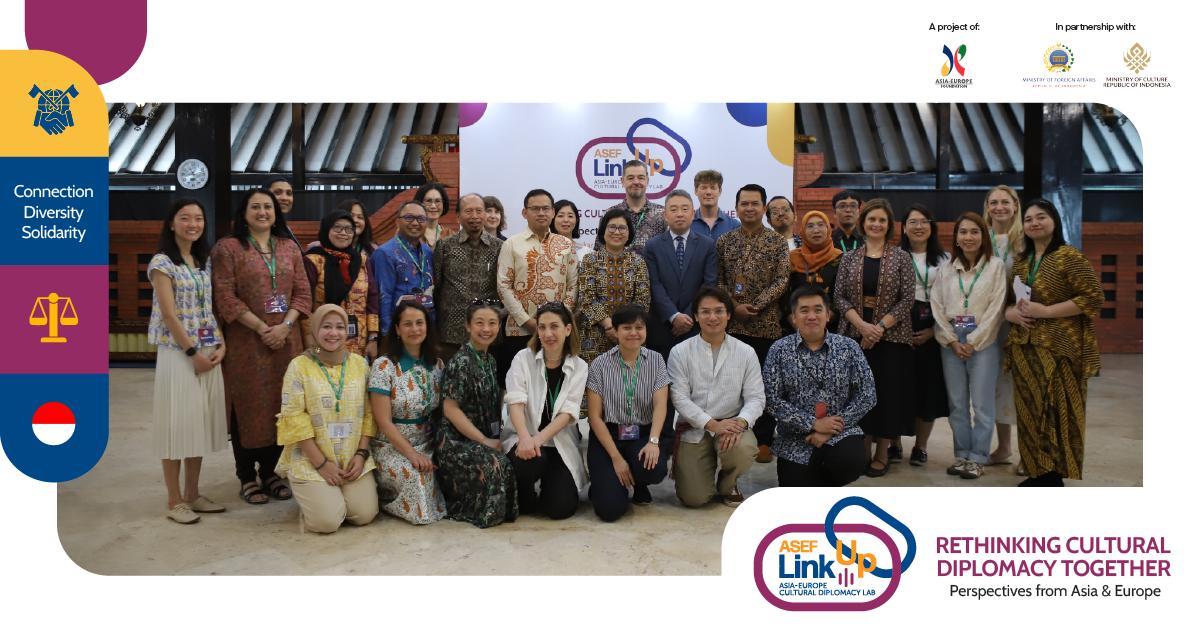
"It is the social capital, the constellation of friendships that we build on." – Cemeti, Yogyakarta
What does it take to move cultural diplomacy from aspiration to action — especially in times marked by structural inequality, language hierarchies, and unequal access to mobility? The third edition of ASEF LinkUp – Asia-Europe Cultural Diplomacy Lab, held in Yogyakarta, Indonesia, from 18 to 21 June 2025, took up this challenge.
Building on insights from previous iterations in Singapore (2023) and Prague (2024), this year’s Lab brought together 16 cultural practitioners, artists, academics, and policymakers to critically reimagine the future of international cultural cooperation. Hosted in a city where tradition and experimentation co-exist, the Lab embraced the Indonesian ethos of gotong royong — mutual aid and collective responsibility — not as an abstract concept, but as a lived practice.
Why Yogyakarta? Grounding the Lab in Local Ethos
Yogyakarta, a city known for its deep cultural traditions and vibrant civic arts ecosystem, proved to be a powerful host for the 2025 Lab. The local principle of gotong royong served not only as a thematic inspiration but as a methodology in action: one that prioritises reciprocity, responsibility, and care within and across communities.
While working in closed-door sessions to envision a better future for cultural diplomacy, participants also engaged in several visits to local arts organisations and heritage sites, offering direct encounters with the ways cultural practices are sustained and adapted in everyday life in Indonesia. These field visits — jointly organised by Indonesia’s Ministry of Foreign Affairs and Ministry of Culture — offered real-time insight into how cultural practices in Indonesia are supported through community resilience, adaptive approaches, and institutional collaboration.
These encounters brought to light a key lesson: resilience in the cultural field often flourishes in response to the lack of robust infrastructure, creating fragile yet deeply supportive ecosystems — where trust, friendships, and informal networks fill the gaps left by limited resources. In Yogyakarta, participants witnessed a dynamic cultural scene that thrives on informality, relationality, and a sense of mutual responsibility.
This grounding helped reframe cultural diplomacy not as a fixed policy tool, but as a flexible, adaptive process rooted in ongoing negotiation and care.
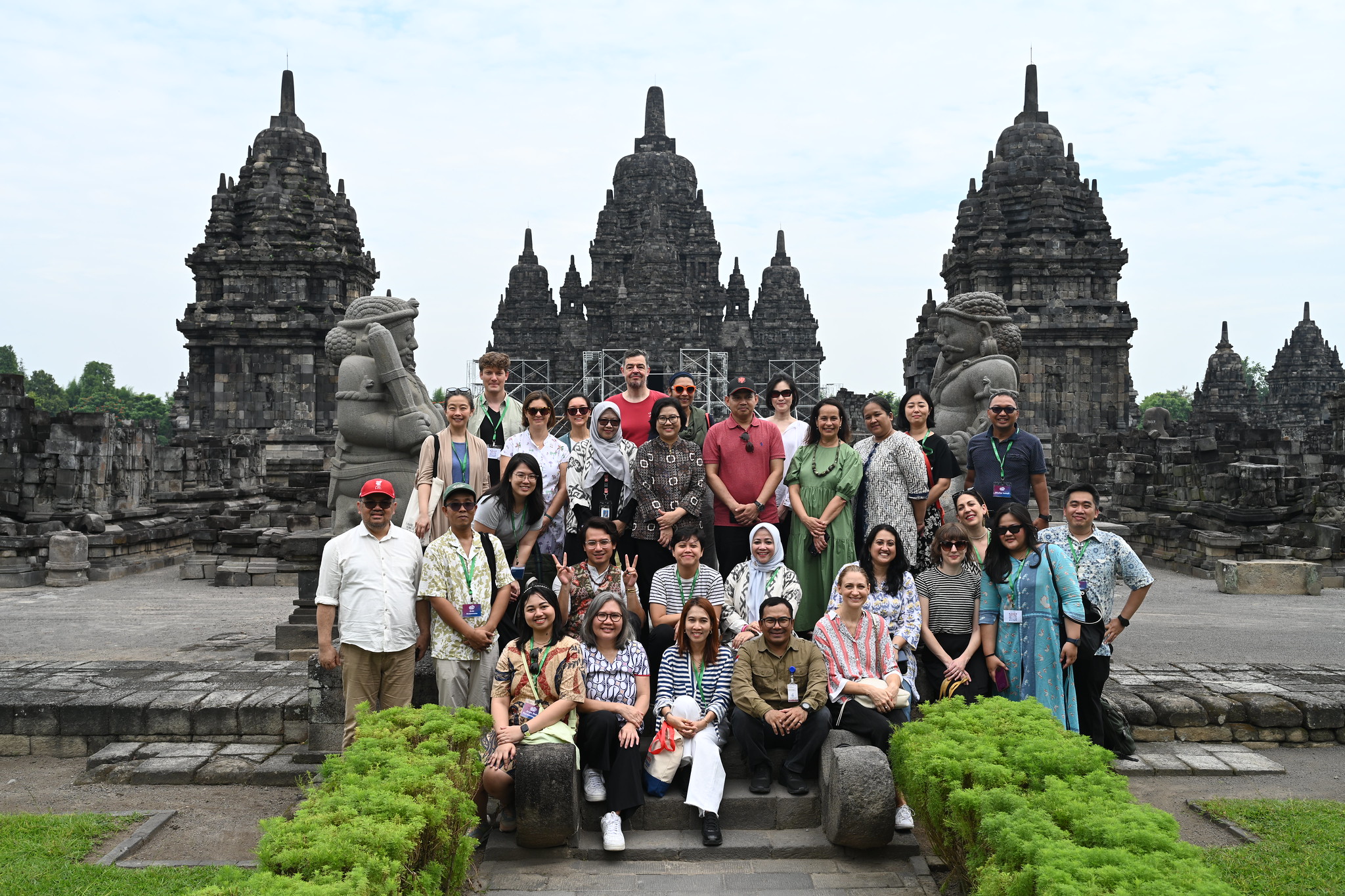 | 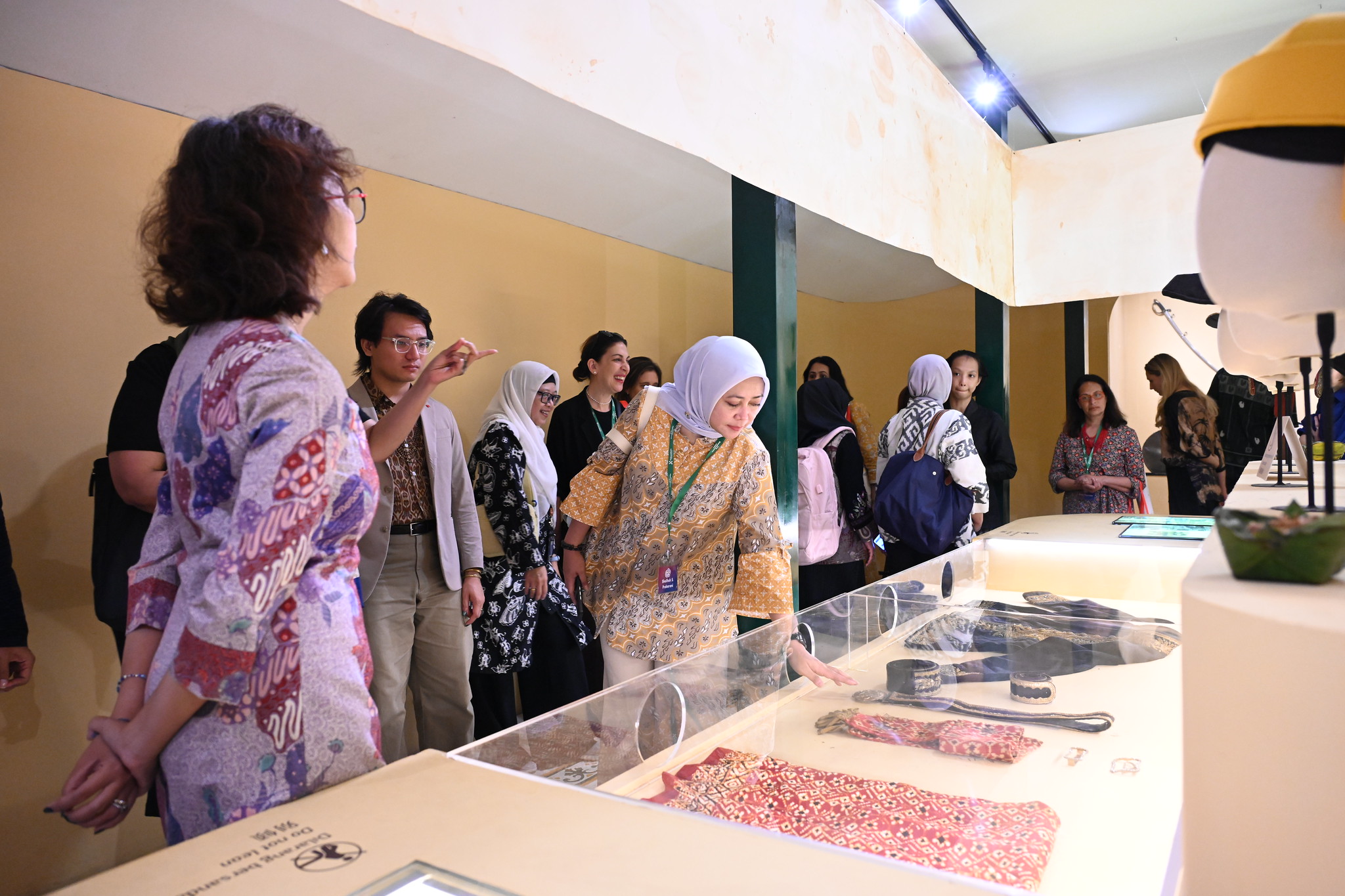 |
1. Participants during the site visits to Prambanan Temple (left) and Kraton, Palace of Yogyakarta (right). Photo © Asia-Europe Foundation | |
Cultural Diplomacy as a Living Process of Care and Negotiation
One transformative shift at ASEF LinkUp 2025 was recognising cultural diplomacy not as a product or protocol, but as a living process — an evolving set of practices grounded in trust, care, and negotiation.
The closed-door sessions began by collectively reframing the concept of collective responsibility — not as a moral imperative alone, but as an everyday practice essential to cross-border cooperation. Through case clinics, facilitated dialogue, and provocations, participants articulated a shared understanding of the values that should shape international cultural relations:
- Shared accountability across roles and sectors: Distributing the responsibility among institutions, artists, civil society, and governments — regardless of hierarchy.
- Care and mutual support: Committing to care for others while trusting that care will be reciprocated, especially in fragile or under-resourced contexts.
- Equity and Inclusion: Amplifying underrepresented voices and ensuring fair access to resources, space, and decision-making power.
- Cross-sectoral collaboration for the common good: Bringing together diverse stakeholders to co-create solutions rooted in public interest and cultural stewardship.
- Decolonising and Decentralising: Creating space for grassroots and non-dominant perspectives to lead and shape agendas, rather than being folded into existing frameworks.
- Courageous, ongoing action: Showing up consistently — through micro-gestures or big shifts — and committing to long-term change.
As one participant aptly described it,
“This is a collaborative effort to harness the power of culture to build a global understanding, peace and mutual respect. It is about promoting shared human values and recognising cultural rights as universal human rights amidst our diversity.”
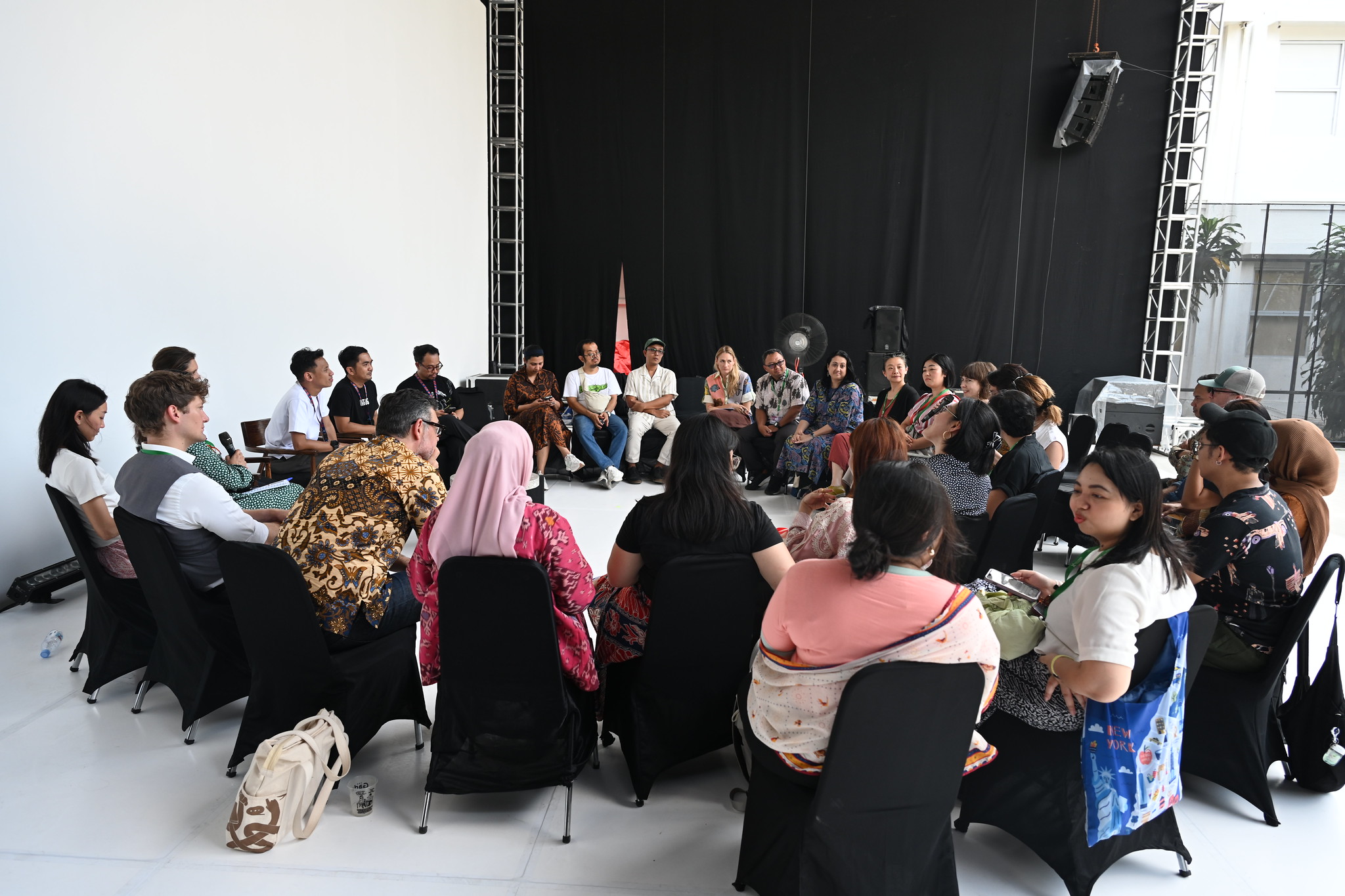 | 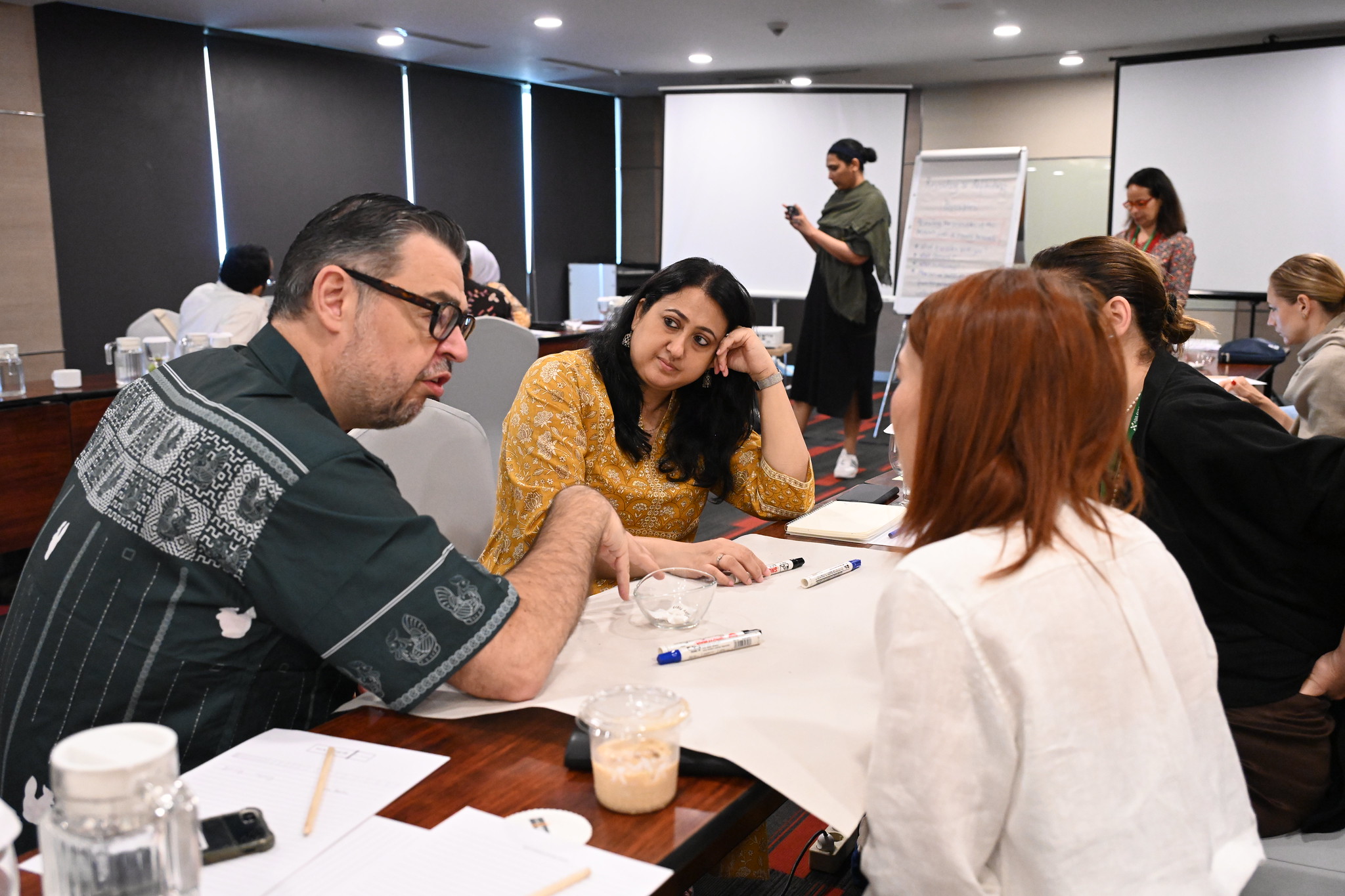 |
2. Participants engaged in discussions during the closed-door sessions, exchanging ideas and insights on international cultural cooperation. Photo © Asia-Europe Foundation | |
Embracing Conflict in Cultural Collaboration
From its inception, ASEF LinkUp was designed to bridge gaps between cultural practitioners and government institutions, creating space for productive tensions to be addressed. At the 2025 edition, these tensions surfaced clearly in a constructive way. Rather than aiming for smooth consensus, the Lab invited participants to sit with the idea of conflict and engage it as a generative force. This shift marked a move from the idea of shared purpose to the deeper, and more honest, acknowledgment of shared, but unequally held, responsibilities. Inclusion was no longer approached as tokenistic representation or symbolic visibility, but as structural access and shared accountability — a recognition of who defines the agenda, who holds decision-making power, and who is left performing the invisible labour that enables collaborations to happen at all.
Participants were invited not to resolve contradictions, but to hold space for them — and from this openness, powerful provocations emerged:
- Can a symbol harm? Participants examined how symbolic gestures — flags, festivals, branding — can sometimes mask inequality or sideline grassroots realities. Collaboration, they noted, must go beyond optics to achieve genuine impact.
- Art is never free. Participants discussed how art exists within systems of funding, influence, and institutional expectations — and how these conditions shape not only the work itself, but also the opportunities to create it.
- Culture is always useful. While culture’s intangible value is hard to measure, it nonetheless plays a vital role in community resilience and identity. Its sustainability depends as much on imagination and lived practice as it does on funding.
- Step outside your bubble. True solidarity requires more than sharing space. It demands that individuals step outside of their worldviews, listen across differences, and co-create new systems of value and meaning.
By embracing these provocations, ASEF LinkUp 2025 reframed cultural diplomacy as a space of negotiation, not neutrality —a practice grounded in its very tensions, where thought-provoking dialogue challenges familiar assumptions and values. Rather than striving for consensus, the Lab embraced the complexity, tension, and uneven terrain that define international cooperation.
Tensions Raised and Realities Exposed
Participants engaged deeply with the lived realities of structural imbalance. Amongst the most urgent tensions raised were:
- Unequal mobility: Visa regimes and travel support remain disproportionately available to artists from the Global North rather than the Global South.
- Language dominance: The widespread reliance on English and French reinforces cultural hierarchies and limits diverse forms of expression.
- Bureaucratic exclusion: For displaced, exiled, or stateless practitioners, administrative systems often function as mechanisms of exclusion and indignity.
- Market and capitalistic influence on cultural practices: Market-driven frameworks often shape what is produced, funded, and valued—undermining independent and community-based artistic agendas.
- Exoticism and framing bias: Decontextualised representations and forms of cultural appropriation showcased primarily for external consumption instead of being engaged through genuine exchange.
In response, participants formulated concrete calls to action — urgent, experience-driven proposals aimed at addressing structural imbalances within cultural diplomacy:
- Redefine the role of the state — shifting from gatekeeper to facilitator, enabling rather than controlling cultural exchange.
- Simplify mobility procedures — especially for artists navigating displacement, crisis, or post-conflict conditions.
- Recognise cultural practitioners as experts and knowledge holders — not merely as service providers delivering programmed outcomes.
- Affirm the dignity and rights of artists — ensuring fair treatment, ethical standards, and protection across all forms of cultural cooperation.
A key takeaway was the urgent need for transparency and long-term commitment from cultural institutions and governments— not only in providing funding mechanisms, but also in building relationships with artists and communities. The call was clear: move beyond transactional engagement toward sustained, equitable collaborations rooted in mutual understanding. Participants emphasised the importance of direct, ongoing dialogue between the cultural sector and public authorities. This includes finding ways to translate policy language into terms meaningful to artists — and translating artists’ needs into actionable policy recommendations. Practical suggestions included regular site visits by government officials to cultural spaces, and town hall-style meetings — as seen in contexts like Singapore — to foster trust, visibility, and shared responsibility in shaping cultural policy.
Far from abstract ideas, these reflections were rooted in the participants concrete experiences The Lab became a rare space where discomfort was openly held, honestly shared, and transformed into a collective impetus for meaningful change.
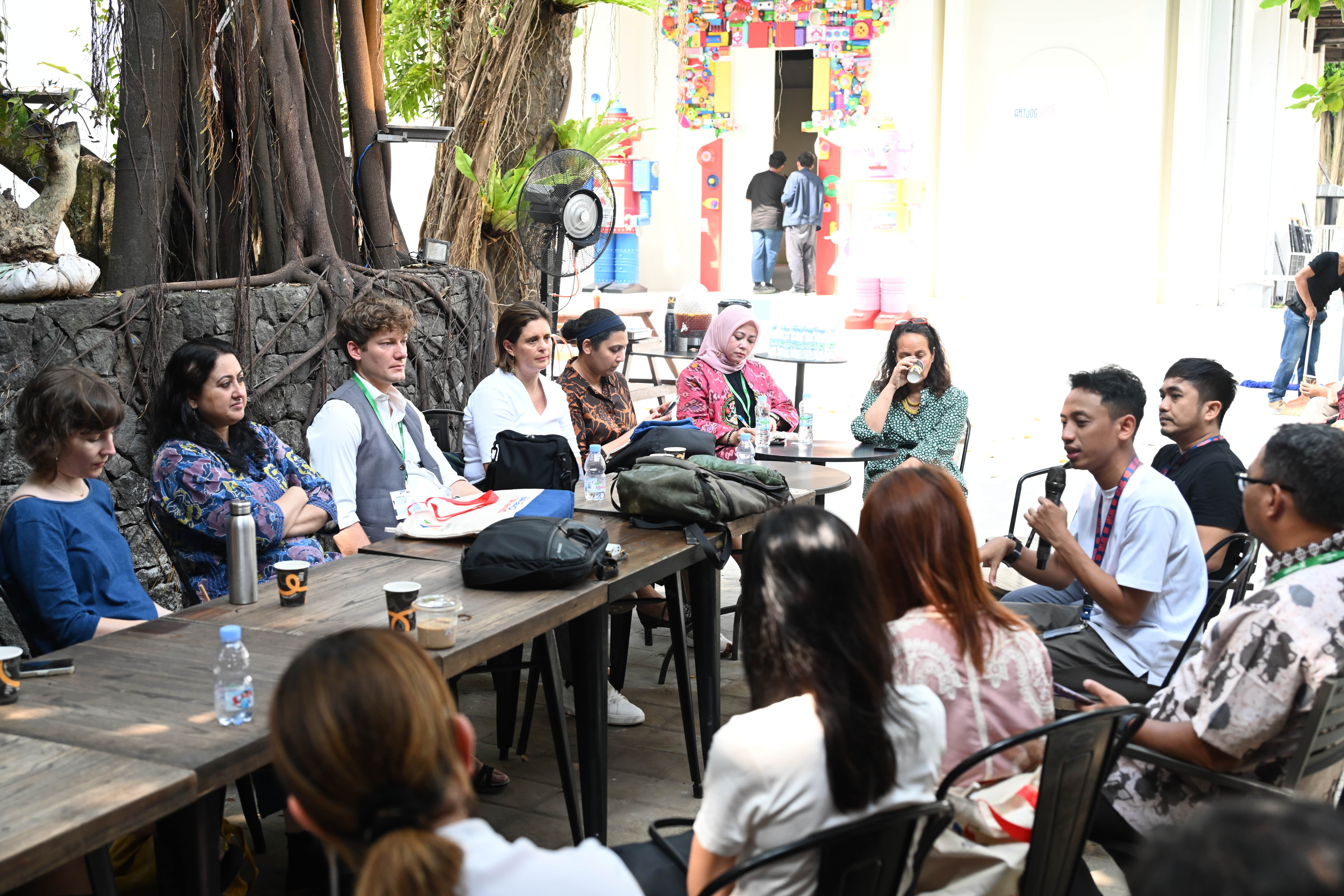 |
| 3. Participants in discussions with representatives from ARTJOG, sharing perspectives on what shapes international cultural collaborations. Photo © Asia-Europe Foundation |
Building Communities of Practice
What emerged most powerfully from the Lab was not a set of recommendations or a toolkit — but the consolidation of a Community of Practice, a vision seeded in earlier editions and increasingly firming up with this year’s edition. Participants co-imagined a sustainable, transnational knowledge-sharing network grounded in horizontal governance, voluntary participation, and enduring friendships. This community is not bound by institutional formality but thrives on trust, reciprocity, and informal exchanges that build capacity across borders.
Participants emphasised the importance of peer-to-peer exchanges, the circulation of relevant opportunities, and the strategic innovation of project design — particularly in aligning with funders' priorities without compromising artistic integrity. Knowledge-sharing, they agreed, is most powerful when it is not just about content, but about creating systems of support that enable artists and cultural professionals to navigate an increasingly complex and unequal landscape together.
As one participant reflected simply but profoundly, “We are not alone.”
In reaffirming its original purpose, ASEF LinkUp positioned itself not only as a laboratory for rethinking cultural diplomacy, but as a relational space for co-creating where mutual support and cross-cultural solidarity can truly thrive.
Conclusion: Reimagining, Together
As the Lab looks toward its next edition, it leaves behind a shift in language and priorities. It reminds us that diplomacy is not the exclusive domain of nation-states, but a shared practice, co-constructed by artists, institutions, and communities across borders.
In the face of complexity, perhaps the most radical act is to listen deeply, act collectively, and continue to “show up” with the conviction that cultural cooperation, held in both care and tension, can transform not only relationships but entire ecosystems.
A powerful proposition: to reimagine, together.
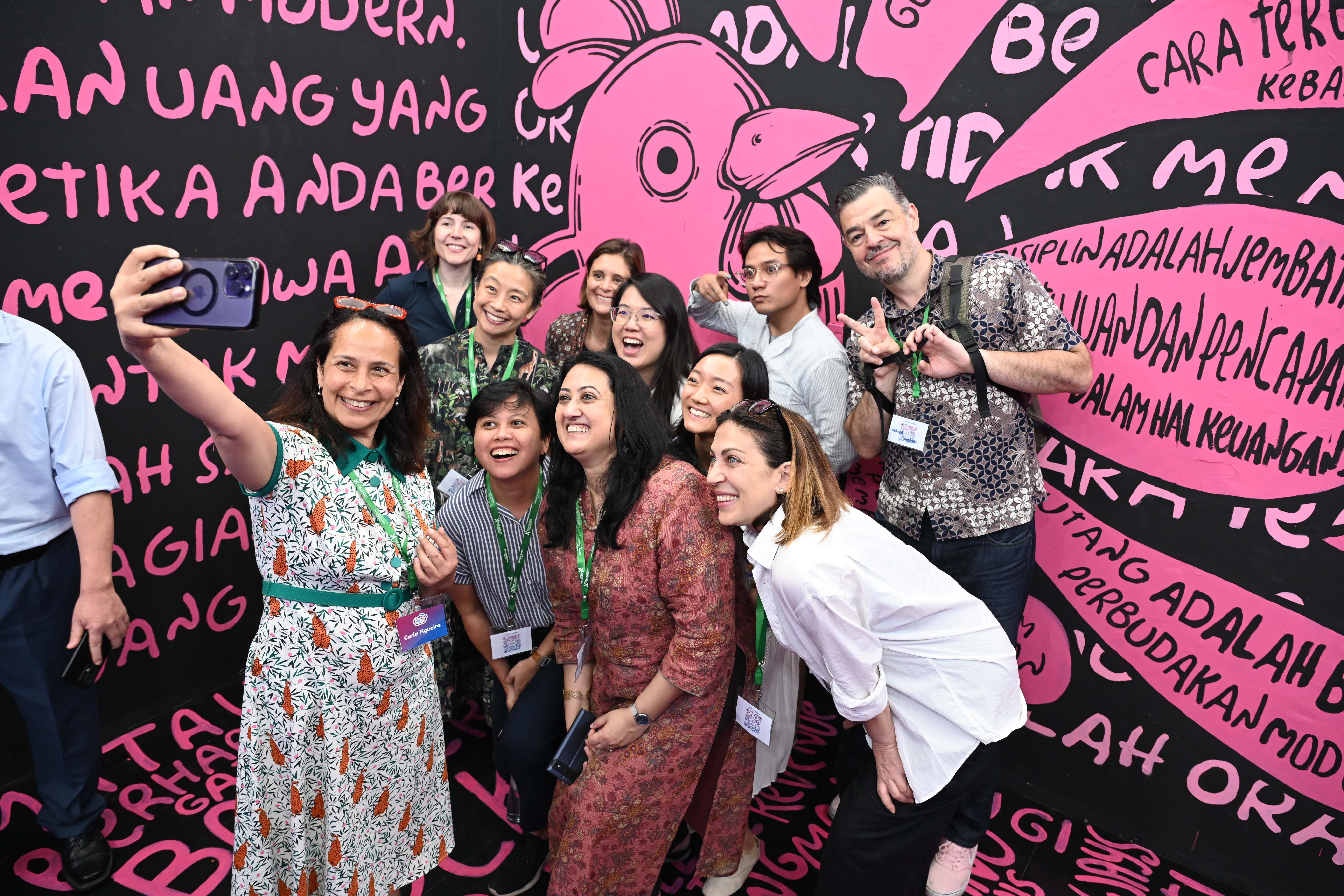 |
| 4. Group photo at ARTJOG 2025. Photo © Asia-Europe Foundation |
Find out more about #ASEFLinkUp 2025:
- About ASEF LinkUp 2025
- Meet the Participants: Arts & Government Sector
- Watch highlights from this year:
